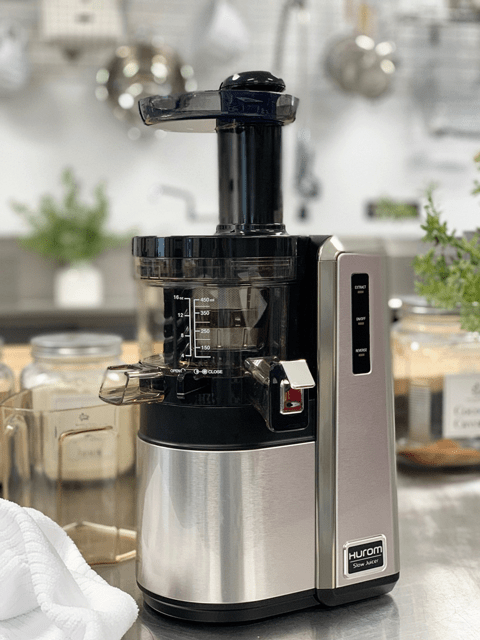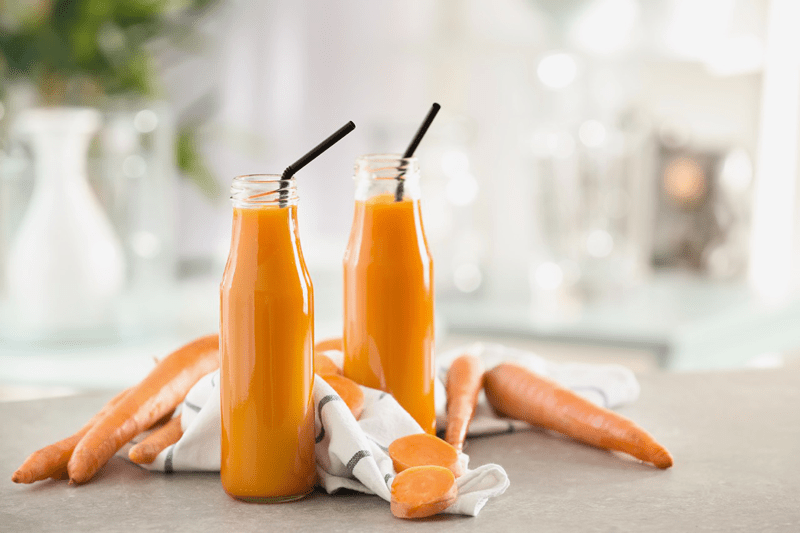


 Add to favorites
Add to favorites

 Ease of Use
Ease of UseYou want a juicer that is simple to assemble, disassemble, and clean. If your juicer is made up of too many parts that it is a headache to put together and clean, chances are that you won’t feel inspired to juice.
While the ease of a simple machine is desired, the main focus of juicing is the quality of the juice once made. With this in mind, look for a masticating juicer which will produce juice that is of higher quality and nutrients.
I also prefer a juicer that has a large feeding tube, so you can put in large chunks, enabling a person to skip the time-consuming chore of chopping all of the produce into small pieces.
If you are new to juicing, you may find yourself hesitant to spend money on a higher priced model. However, it’s not only the price of the juicer that you should consider but the cost of the whole juicing process over time. Cheaper juicers are not as efficient as the masticating ones. Therefore, they yield less juice and waste produce which all equals money.
In our household, we don’t like to wake up to jarring noises. If you rise before others, you do not want your morning juicing to wake up the rest of the family. You would want a juicer that works quietly so as to keep the peace in your home. In general, the cheaper, high-speed centrifugal juicers are the noisiest while the slow-moving masticating and triturating ones are the quietest.
It is imperative that your juicer comes with a warranty to cover any unfortunate factory defects that may not be evident at the outset. Lack of a warranty is often associated with cheaper brands and models of juicers. Always check to see what the warranty is on each juicer that you are considering to purchase.
When it comes to extracting the juice of highly-fibrous leafy greens such as wheat-grass and spinach, only the more powerful juicers can do the job. In general, a minimum of 400 watts is needed for extracting the juicy goodness of tough vegetables.
I hope you found this helpful. I laid out a pretty basic outline of what to look for as you aim to ramp up the nutrients in your day to day life. Below I have listed the two juicers that I have in my kitchen. I have owned the Omega since 2009 and the Champion since 2013.
Nouveauraw.com is a participant in the Amazon Services LLC Associates Program, an affiliate advertising program designed to provide a means for us to earn fees by linking to Amazon.com and affiliated sites – at no extra cost to you.
Thank you for your support! amie sue
Hi Amie What is the difference of Huron juicer and MANA
Good morning Mirian. To be honest, I am not sure without researching it. I have the Huron juicer but I haven’t read up on the MANA juicer.Can you share a link with me to the exact juicer you are looking at so I can research a bit? blessings, amie sue
I owned and used a Champion juicer — bought new, for more than 30 years. It always performed like a champ. I didn’t bring it here to Bali, because it is so heavy and not designed for the electricity here. I have not yet bought a new juicer. No quality juicers are available in Bali. It would be a trip to Singapore. I might get another Champion, but I researched juicers extensively for hours on the internet and concluded that the Tribest SW – 2000 – B Slowstar Vertical Slow Juicer would be my first choice. The Champion would heat things up a bit and was not the best for juicing green leafy vegetables. Back in the states, I used a wheat grass juicer for that.
I have a Champion juicer as well. I enjoy both but tend to gravitate to my Hurom. Thanks for sharing what you found works for you over there in Bali. I can imagine that it was quite an adjustment. I have heard of the Tribest but haven’t owned one personally to comment on it. Have a wonderful day, amie sue
Hi Amie this is the link
@namawell.com Or
@namawell juicer
Thanks Mirian!
It’s a “Nama” juicer, not Nana.